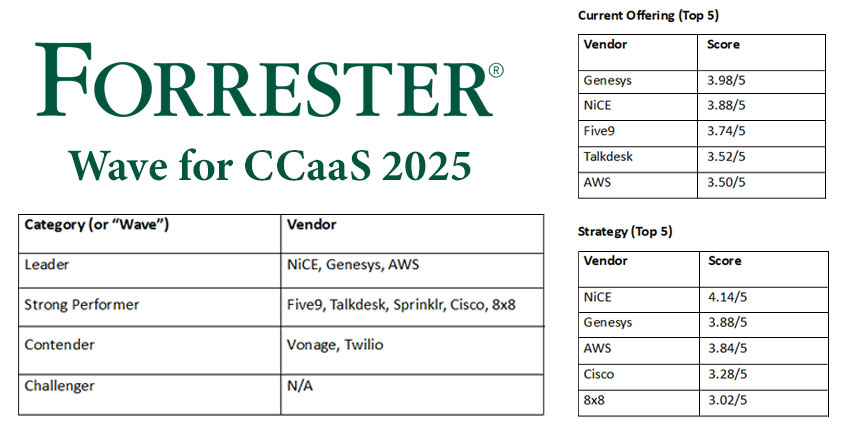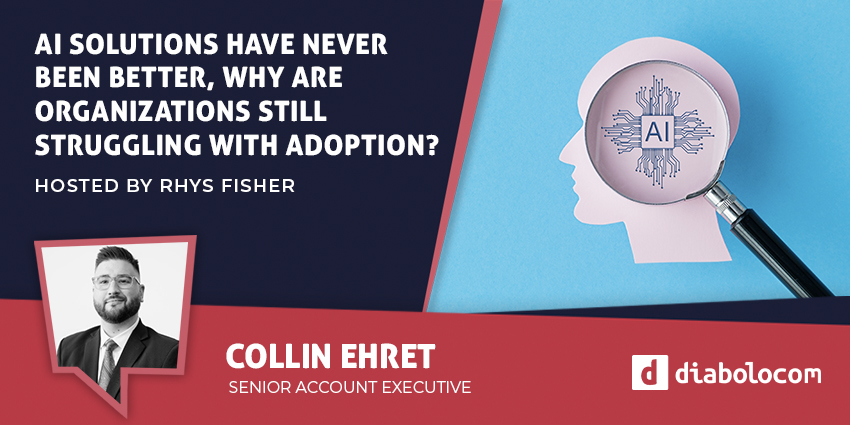Call center compliance is something every business needs to master in 2023. As customer expectations evolve, consumers want more than simplicity and convenience when interacting with brands. They want a guarantee their information will be kept secure and private.
These changes in customer expectations are driving the creation of new rules and regulations for businesses to follow. Failure to adhere to these guidelines can have a disastrous impact on both a company’s reputation and its finances. Major tech companies like Amazon, Meta, Google, and Amazon have already paid millions in non-compliance fines.
Unfortunately, keeping up with evolving regulations isn’t simple.
Today, we’re going to be examining what call center compliance looks like in 2023 and what companies can do to stay ahead of the regulations.
What is Call Center Compliance? The Basics
Call center compliance is a company’s ability to adhere to the rules set by regulatory bodies for companies interacting with consumers. Notably, many different guidelines influence the contact center. The rules you must follow when collecting and preserving data will vary depending on your location, customers, and industry.
On a broad scale, contact center compliance requires companies to take a strategic approach to managing the data that flows through a contact center. Every time a company collects, exchanges, or reviews sensitive information, there will be regulatory guidelines to follow.
Non-adherence to contact center compliance strategies can lead to hefty fines for major businesses. However, it’s not just a company’s finances that take a hit. Failure to adhere to compliance rules can significantly damage a brand’s reputation, scaring away customers.
Investing in the right contact center compliance strategy ensures that businesses can win customer trust, showcase reliability, and increase revenue.
Contact Center Compliance: Guidelines You Should Know
As mentioned above, the call center compliance rules each business needs to follow can vary depending on numerous factors. Some regulations affect virtually every contact center. For instance, most countries implement data protection laws that require agents to receive consent when recording and monitoring conversations.
Other guidelines are specific to companies that operate in certain geographies (like GDPR) or industries (such as healthcare or finance). Some of the key regulations you’ll need to be aware of when creating your call center compliance strategy include:
- Do Not Call Registry: The Do Not Call Registry allows consumers to opt out of telemarketing calls issued by outbound contact centers. Failure to adhere to this request to opt out can incur fines of over $40,000.
- GDPR: The General Data Protection Regulation grants ownership of sensitive information to individuals. It applies to all companies that accept and store information from EU and UK residents. Consumers can request access to store data and ask for information to be erased.
- The Dodd-Frank Act: This law requires all contact centers to record phone conversations and save them with a time stamp and date in a searchable format.
- PCI-DSS: Focused on the financial landscape, the Payment Card Industry Data and Security Standard requires contact centers to abide by specific rules for collecting and processing payments. It also imposes limitations on how to store data.
- HIPAA: Applicable to contact centers in the health industry, HIPAA requires businesses to restrict using and sharing of personal health information. It requires companies to secure and encrypt personal data where necessary.
- TCPA: The Telephone Consumer Protection Act establishes requirements for obtaining consent for marketing calls, using automatic dialing systems, and leveraging pre-recorded messages. It also provides consumers with the right to request non-contact.
Improving Call Center Compliance in 2023
Ensuring call center compliance in 2023 requires companies to understand which regulations affect them and how these guidelines should impact daily operations. Often, there’s more to implementing the proper compliance standards than simply recording calls.
The right strategy in 2023 requires organizations to consider their entire communication landscape, data storage, and employees’ training to follow policies.
Here are some critical steps for improving call center compliance in 2023.
1. Create a Call Center Compliance checklist
Perhaps the first step in improving call center compliance in 2023 is creating a complete checklist of the various rules and regulations your team should adhere to. Depending on the nature of your contact center, this checklist may include multiple stages and steps.
For instance, your checklist might include:
- Ensuring network security with firewall, anti-malware, and anti-virus software.
- Encrypting payment and credit card information for PCI-DSS compliance.
- Keeping a log of abandoned call rates for predictive diallers.
- Generating specific IDs and access controls for different team members.
- Testing network security regularly to detect potential vulnerabilities.
- Deleting DNC phone numbers from your database.
- Addressing guidelines for communication and telemarketing.
- Verifying data sovereignty and storage methods.
- Safeguarding protected health information.
- Training team members on new compliance standards.
2. Invest in Agent Training and Quality Assurance
Up to 88% of all data breaches are caused by human error. This means companies ensure they’re investing in strategies to keep their team members compliant. Automated quality assurance tools can help with tracking and recording compliance on a per-employee basis.
Some solutions can even pinpoint keywords in a conversation or alert supervisors and managers when non-compliance issues emerge. Similarly, investing in agent training will ensure team members adhere to the latest compliance guidelines.
Some CCaaS platforms offer real-time coaching tools supervisors, and managers can use to guide new employees through compliant practices. Others provide step-by-step guidance with AI assistants already trained in compliance standards.
3. Leverage Tools for Data Collection
Many call center compliance standards companies must follow today require businesses to collect and secure various forms of data. It’s not just call recording companies that need to be aware of it anymore, but also screen recording and file-sharing insights.
The right tools in the contact center environment can help collect valuable information. They can record interactions automatically across various platforms in an omnichannel contact center. They can also provide useful tools for things like time tracking so that companies can adhere to fair labor standards.
Business leaders can even invest in automated quality assurance scorecards to track and flag issues with compliance regulations. Or they can use CRM solutions to help effectively record and manage customer information. Since this information is easily retrievable in a CRM environment, it can be deleted or removed according to GDPR standards.
4. Invest in Innovative AI Tools
AI isn’t just transforming how companies connect with customers through self-service generative AI bots and automated assistants. Intelligent solutions can also help companies improve their compliance with standard protocols and regulations.
Speech analytics tools empowered by natural language processing can automatically listen to and transcribe calls, creating searchable data for an audit. AI assistants can listen to employee interactions with customers to detect potential miss-steps and errors.
Some AI solutions can even automatically redact sensitive information from recordings, such as credit card information, to ensure compliance with multiple regulations.
5. Secure the Evolving Network
One of the reasons call center compliance has become more complex in recent years is that contact center agents are no longer exclusively located in an office. Employees work from various environments, and not every network connection is guaranteed to be secure.
Implementing strategies to improve network security will be essential in the age of hybrid and remote work. Companies must ensure employees are using secure devices, modems, and routers to keep information safe. It may also be necessary to monitor and update devices remotely.
Endpoint management tools will ensure companies can remove information from a device if lost or stolen. They can also allow companies to patch security threats remotely.
6. Upgrade the Authentication Process
Implementing a strategy for mitigating contact center fraud is essential to security and compliance. Protecting customer data ensures only the right people can access critical information. This requires companies to invest in new authentication methods.
Two-factor and multi-factor authentication are becoming commonplace in highly regulated environments. However, some companies are also taking advantage of more advanced authentication solutions. For instance, voice print biometric technologies can authenticate customers based on numerous specific factors in their speech.
7. Leverage Automation when Recording Conversations
As mentioned above, a typical call center compliance component involves recording customer conversations and data. However, companies also need to obtain permission to collect and store information. Automation tools can help with this.
Automated solutions can request permission from a customer to record a conversation before a conversation with a human agent begins. This reduces the strain on employees to remember to ask for permission before starting a call.
The same tools can automatically detect information that needs to be removed from recordings or transcribe content into a written format for search purposes. The right automation solutions will simultaneously boost productivity and reduce compliance risks.
8. Implement a Data Management Strategy
Finally, companies will need to ensure they have the right strategy in place for collecting and managing data. The amount of data collected and created by the contact center has increased drastically in recent years, particularly as new communication channels emerge.
Business leaders must collect data from all the proper channels and store it in suitable locations to meet data sovereignty standards. Moreover, as companies continue to leverage data for decision-making strategies and chatbot creation, policies will need to be implemented for data usage.
Companies must ensure they’re not using sensitive or personal information to train generative AI bots or support employees in the contact center.
Improving Call Center Compliance
The good news for business owners is that while call center compliance is complex, numerous tools are available to help businesses navigate the regulations. Many contact center platforms now come with built-in compliance, security, and privacy tools.
What’s more, various compliance-focused vendors on the market offer integrations for recording, quality assurance, and data management tools. Some companies even focus on specific highly regulated industries, such as the government, healthcare, and finance.
With the right strategy in place and support from the best vendors, any business, large or small, can ensure they stay ahead in the compliance game.







